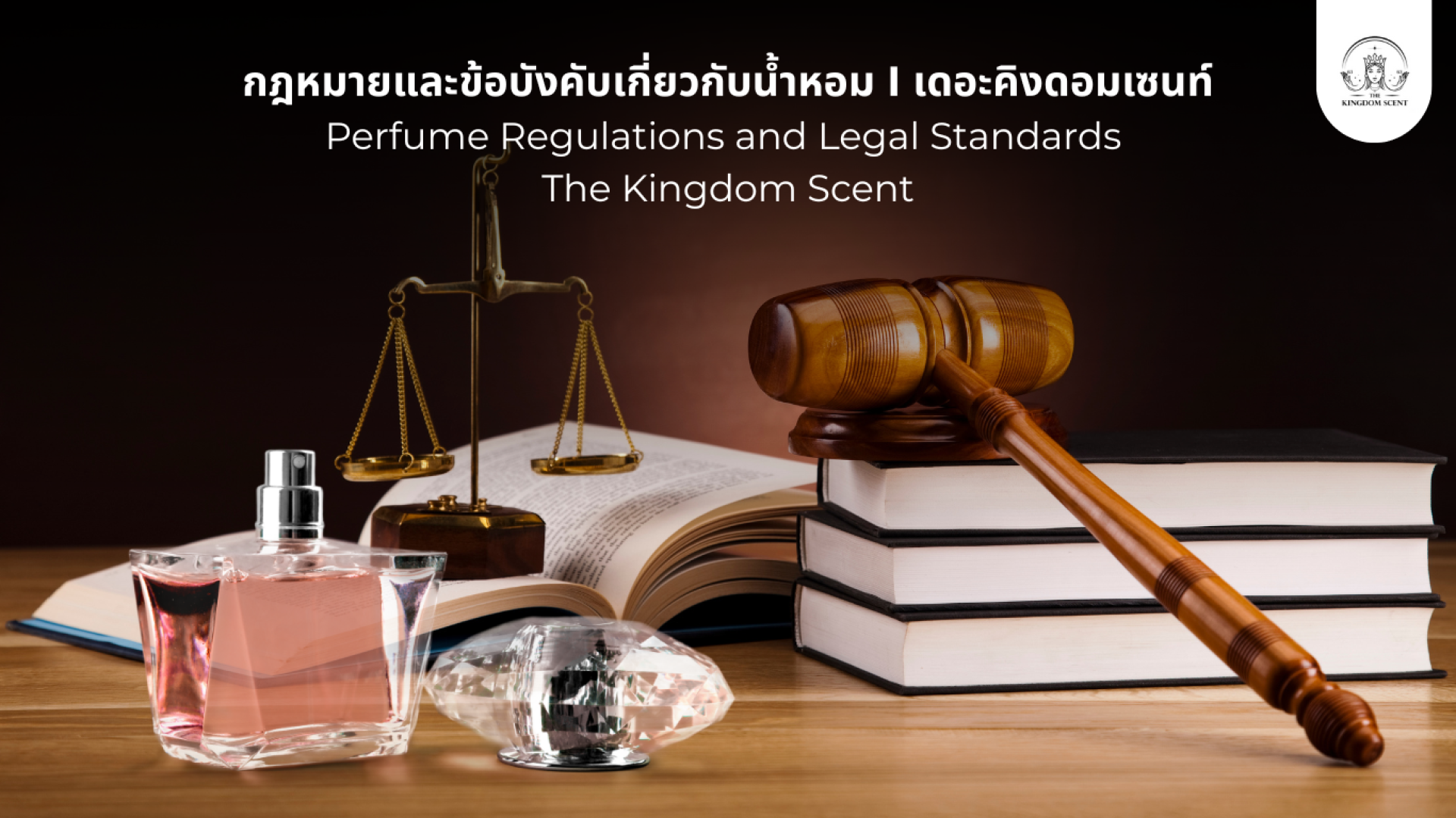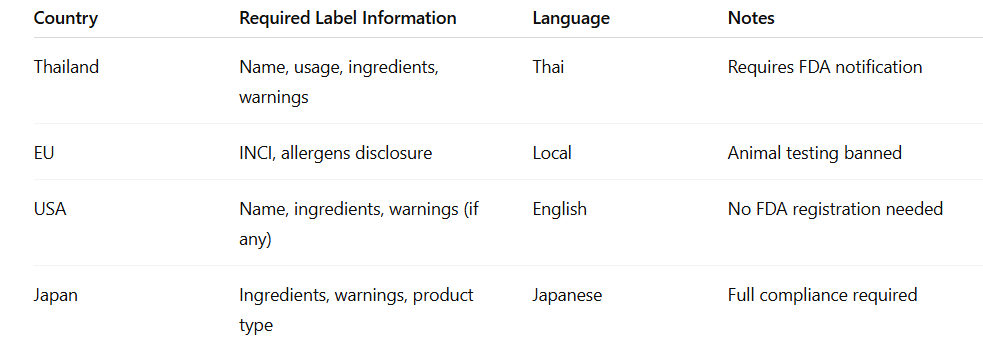Perfume Regulations and Legal Standards... The Kingdom Scent

The production and sale of perfume today go far beyond local markets. Global expansion requires a solid understanding of the laws and regulations in each country to ensure product compliance, safety, and international success.
Why Is Perfume Regulated Worldwide?
To prevent the use of harmful chemicals.
To protect consumer health.
To ensure industry standards and safety.
To promote transparency in product labeling.
Regulatory Authorities and Legal Requirements by Country
Thailand
Authority: Thai FDA
- Body-use perfumes are classified as "cosmetics" must be notified to the FDA.
- Labels must be in Thai and follow required format.
- Must not contain banned ingredients listed by the FDA.
European Union
Authority: European Commission (Regulation EC No. 1223/2009)
- Must disclose 26 fragrance allergens (if present).
- Animal testing is strictly prohibited.
- Requires a Cosmetic Product Safety Report (CPSR).
United States
Authority: FDA
- Cosmetics do not require pre-registration.
- Governed under the Federal Food, Drug, and Cosmetic Act.
- Labeling must not be misleading and must ensure safety.
Japan
Authority: Ministry of Health, Labour and Welfare
- Some perfumes are classified as quasi-drugs and require approval.
- Japanese language labeling is mandatory and must be accurate.
Labeling Requirements Comparison

Banned and Restricted Ingredients
Banned substances vary by country Examples include...
Hydroquinone
Mercury compounds
Formaldehyde
(Always check local banned substance lists before launching your product.)
Tips for Brands Targeting Global Markets
Study each target country's specific laws.
Seek guidance from legal consultants or government agencies.
Make sure your formula meets international safety standards.
Use multilingual labeling for global accessibility.


